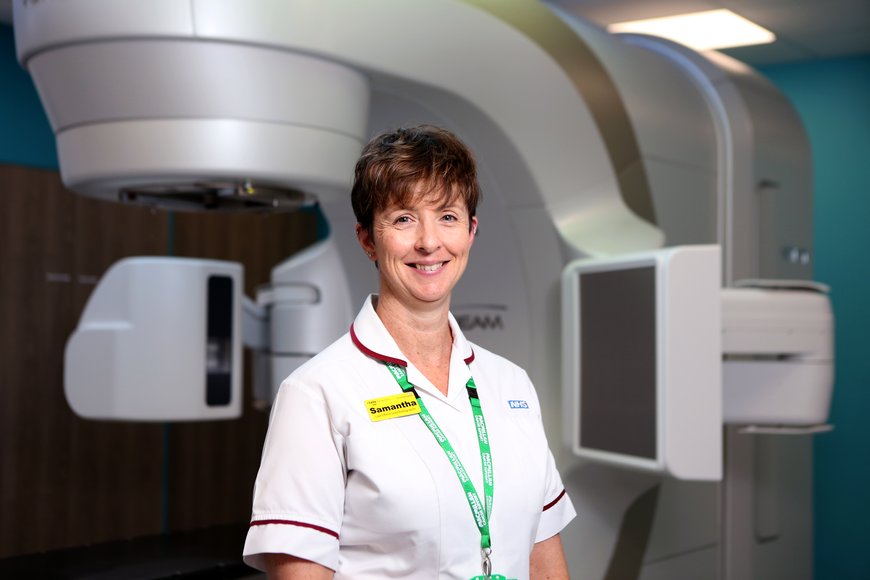New Radiotherapy Late Effects service for Gloucestershire
Patients in Gloucestershire who are experiencing late side effects following radiotherapy treatment can now benefit from an important new service
Funded by Macmillan, the Radiotherapy Late Effects Service at Cheltenham General Hospital’s Oncology Centre offers support and guidance for patients who are experiencing side effects as a consequence of earlier radiotherapy treatment.
The late effects of radiotherapy (developing six months or longer post-treatment) can vary widely and, depending on the part of the body treated, may include bowel and bladder disorders, pain, swelling, sexual dysfunction and fatigue. These physical symptoms can develop months, years, or even decades after undergoing Radiotherapy, and can have a significant impact on a patient’s quality of life, often leading to emotional distress.
Bridget Moore, Radiotherapy Manager adds: “We’re delighted to be part of the wider South West Late Effects service funded by Macmillan; although we have run a much smaller scale service for the last two years supported by our own FOCUS charity, this new funding allows us to extend our support to many more patients.”
Samantha Bostock, Macmillan Late Effects Lead Radiographer, said: “Late effects can develop after many years and patients therefore don’t always associate their symptoms with their previous cancer treatment. This can occur from six months to many years after treatment has finished and is due to permanent changes in tissues; chronic pain, incontinence and lymphoedema are examples of late effects.”
The new service provides specialist advice for patients with long-term complications of radiotherapy. It offers a range of strategies including assessment of symptoms with appropriate diagnostics, patient information, treatment care plans and medications. Onward referrals to other healthcare professionals and teams within the Trust are also made where appropriate.
It’s important to note that not all patients will develop late side effects and much depends upon factors such as the radiation dose, the number of treatments delivered and whether the patient has any other conditions.
Samantha explains: “We cannot necessarily remove or reverse the effects that patients experience as a result of previous radiotherapy treatment but importantly, we can reduce the impact this is having on their quality of life or ability to function.
Samantha continues: “Thanks to MacMillan funding and the support of the South West Cancer Alliance, our Radiotherapy Late Effects service can now offer more patients the time they need to tell us what side effects they’re experiencing and how this affects them, so we can begin to devise a management plan together."
The first appointment within the Late Effects service lasts for a minimum of an hour, with support provided through clinics at Cheltenham General Hospital, as well as video calling and telephone appointments.
The service is aimed at anyone from Gloucestershire who has completed Radiotherapy treatment more than six months ago and is now experiencing difficulties that may be related to their treatment.
Initially, patients can be referred to the Late Effects service by GPs and other healthcare professionals and they will soon be able to self-refer.
The late side effects of Radiotherapy can affect people in various ways and we're here to support these patients to help manage their symptoms and live the best life they possibly can.
Samantha Bostock, Macmillan Late Effects Lead Radiographer
